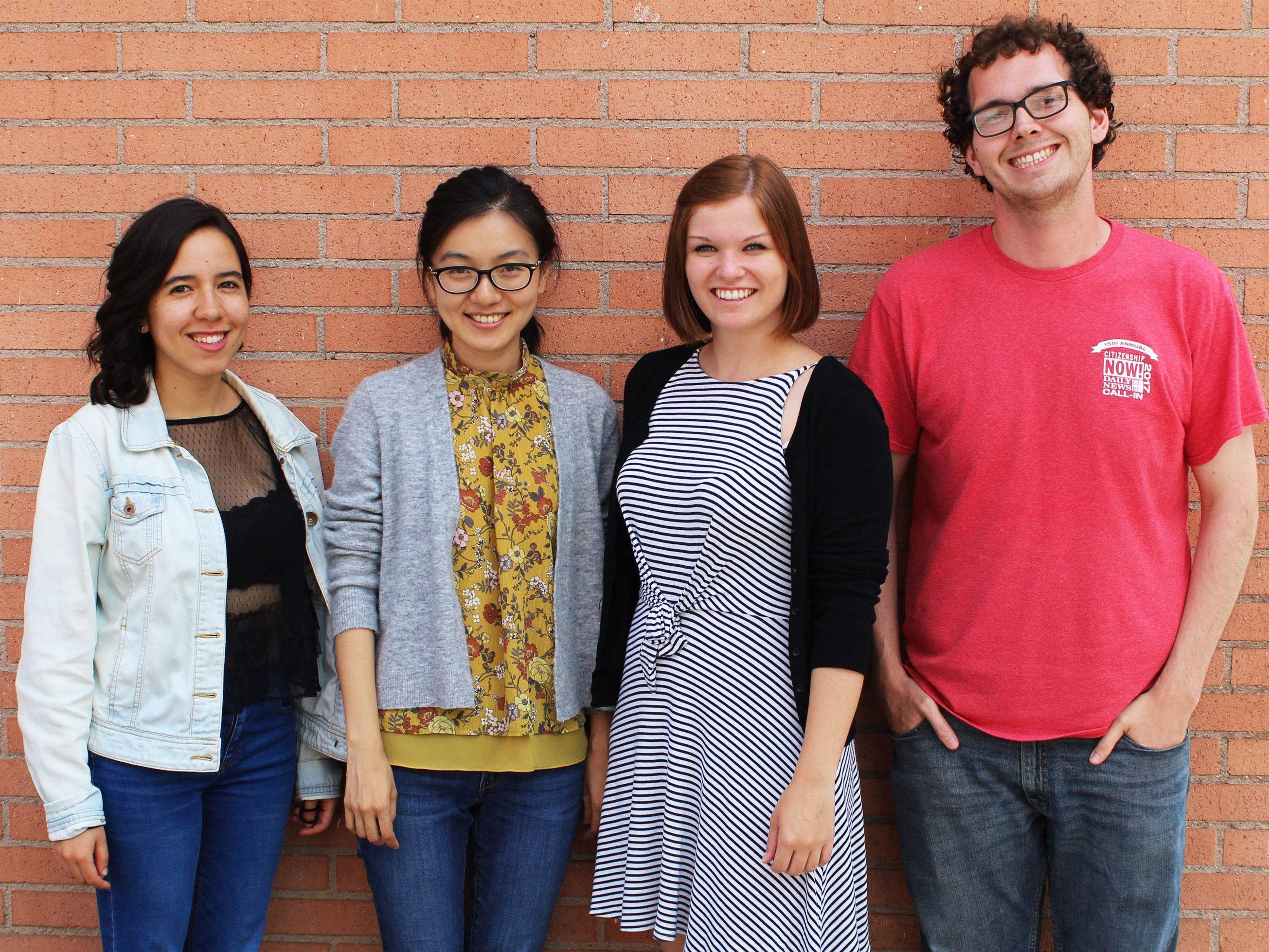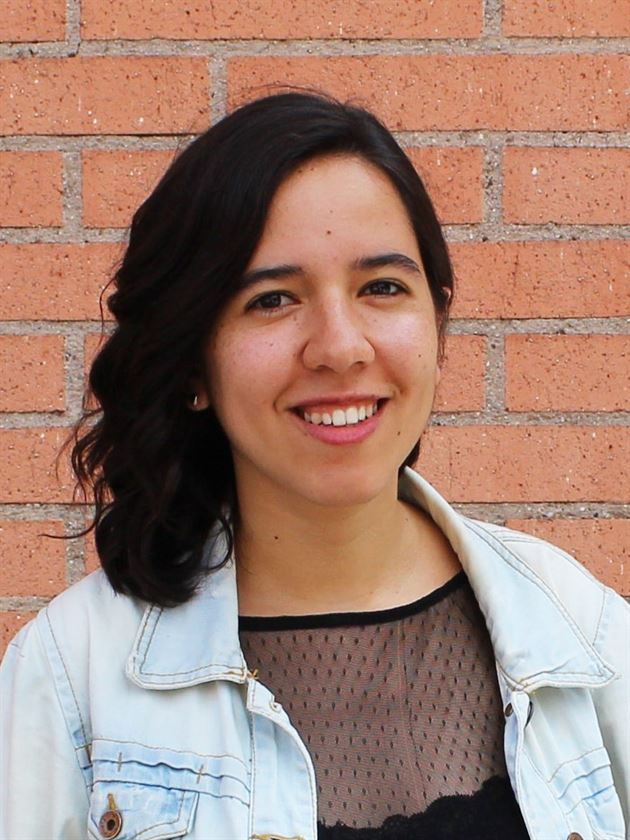Lisa Schantl traveled to a foreign land in 2017, leaving her hometown to embark on a new adventure that would bring her to Montclair State University.
As an English as a Second Language (ESL) student, Schantl was passionate about immersing herself in a new culture and seeing through others’ perspectives. As founder and editor-in-chief of Tint Journal, she is now expanding that opportunity to her readers.
Schantl was an exchange student awarded the Montclair-Graz Sister Cities Scholarship, which offers two students from Graz, Austria the chance to attend Montclair State each year. During her time in the US, Schantl took advantage of access to creative writing classes and grew more confident in her grasp of the English language.

As the founder of Tint Journal, Lisa Schantl hopes to create new understandings of language between writers and readers across the globe. Photo courtesy of Lisa Schantl
As a non-native English writer, Schantl realized that her approach to language enabled her to bring new insights to the writing process. Schantl eventually became a staff writer for The Montclarion, using her unique perspective as a voice for the campus community. In previous articles, she offered a guide on vacationing in Europe as well as a look into Graz International Summer School, cleverly termed “a summer school in a castle.”
Many of her experiences were encouraging and contributed to her mastery of the English language. However, she did recall a situation in which a professor assumed her work would contain grammatical and spelling issues, choosing to lower a grade on an assignment without even checking.
After being confronted, the professor ultimately apologized. Schantl’s work was well-written and free of mistakes. The encounter stuck with Schantl and inspired her to work toward changing the assumptions of the ESL community.
“This instance made me aware of the prejudices that non-native speakers and writers have to face and sparked the first ideas to do something against that,” Schantl said.
In the summer following Schantl’s year at Montclair State, she would go on to participate in the LARB/USC Publishing Workshop in Los Angeles. In a moment of spontaneity, she decided to share her dream of an ESL literary journal.
“I remember how my heartbeat fastened when several participants indicated their trust in my project and offered their support,” Schantl said.

The Tint Journal Team is entirely comprised of volunteers, including (from left to right) Valeria Garcia Origel, Rongqian Ma, Lisa Schantl and Kenny Guay. Photo courtesy of Lisa Schantl
Through hard work and careful planning, Schantl and a team of her peers were beginning to see the journal take shape. Schantl explained the sense of empowerment she felt when she started receiving writing submissions.
“When the first emails started hitting my mailbox, I felt that this thing was becoming real,” Shantl said. “My vision had turned into a mission, and then into an actual project.”
The name of the journal, Tint, was drawn from the belief that everyone brings a new light to the written word. Boris Dralyuk, executive editor of the Los Angeles Review of Book as well as a translator and author, shared his understanding of the phrase.
“The writing in these pages testifies to the fact that foreignness is not a taint, but a tint, without which our world would be hopelessly dull,” Dralyuk said.
Tint Journal’s mission statement is to “shine a light on the ways that authors all over the globe can contribute to what we know as literature in English.” Each issue contains entries from writers all over the world. Although their “mother tongues” are diverse, the desire to express themselves through literature is a shared understanding which traverses any perceived language barriers.
From short fiction to nonfiction and poetry, readers can find a variety of writing to engage with. All of the submissions come from non-native English speakers and writers who translate their own work, maintaining the integrity of their artistic intentions through the process of self-translation.

Kenny Guay is Tint’s main copy editor, and he currently resides in Pennsylvania. Photo courtesy of Lisa Schantl
Janis Hubschman, a writer and English professor at Montclair State, praises Tint Journal for its goal of “bridging borders” across the world.
“This journal has a compelling mission, one that I haven’t seen before in a literary magazine,” Hubschman said. “By opening a space for ESL writers’ creative voices, Tint Journal will expose readers to a rich, culturally diverse world.”
Tint Journal releases new work twice a year and is entirely volunteer-run. On top of text-based submissions, authors also produce an auditory reading of their work, all of which is available for free on their website.
Valeria Garcia Origel, a contributor and editor who works on Tint’s marketing and communications, shared her motivation for creative writing.
“It’s this unruly urge to transform my feelings, especially the ones killing me, into a narrative, a hidden fiction and to ease my soul,” Garcia Origel said. “And maybe, deep down, be heard in the things that I find hardest to say.”

Valeria García Origel speaks Spanish, French and English. Her piece, titled “Third Drawer,” is available on the Tint Journal website. Photo courtesy of Lisa Schantl
Schantl believes that Tint Journal can make a difference in the world of English literature as well as in the ways people interact with each other.
“I personally hope that our journal will open the eyes of native speakers and non-native speakers alike and make them aware that not only natives can be in full command of their language,” Schantl said. “Non-native speakers substantially contribute to the understanding of language as a tool for communication, and they shape and change language, and enrich it with their own colorful backgrounds.”
To support Tint Journal, readers can visit their website tintjournal.com as well as their social media sites @tintjournal on Facebook, Instagram and Twitter. Donations can be made on Patreon or Ko-fi, which will help support Tint’s ongoing mission of diversity and inclusivity. Their next call for submissions will open this month and interested writers can subscribe to their weekly newsletter to stay updated.



